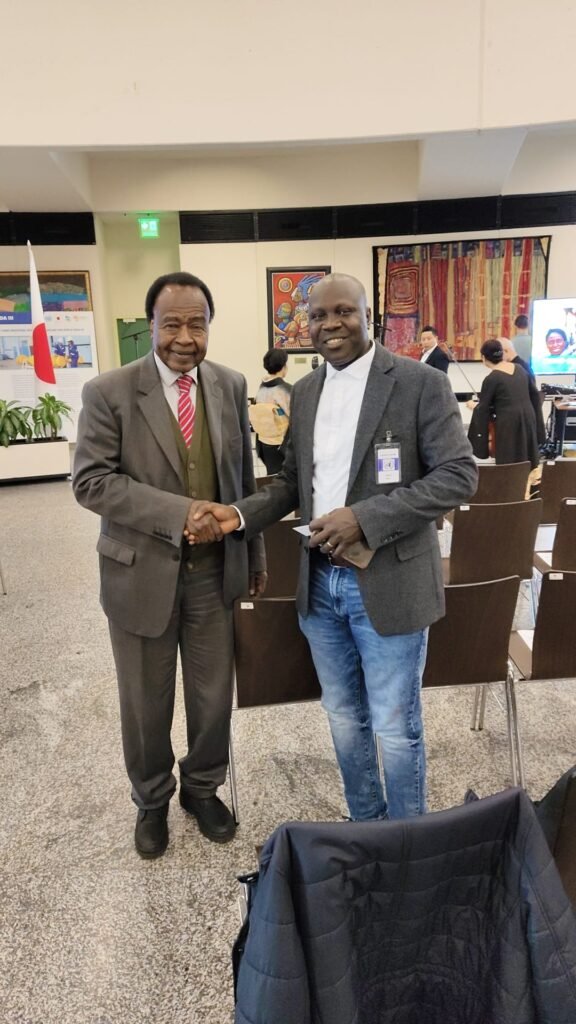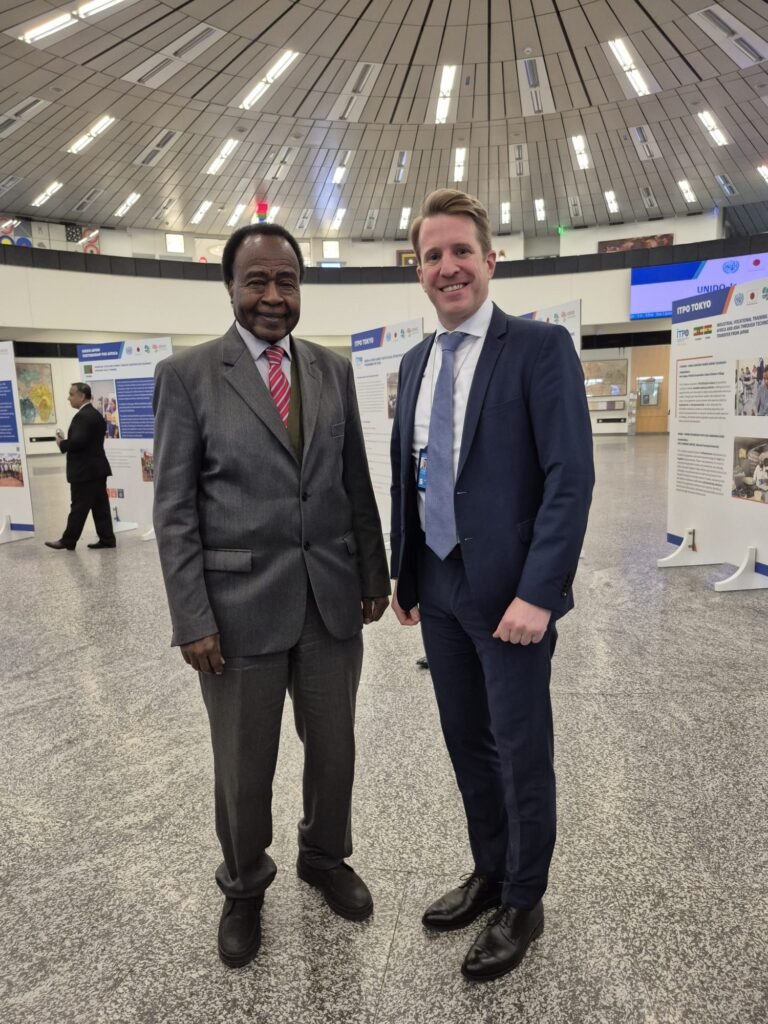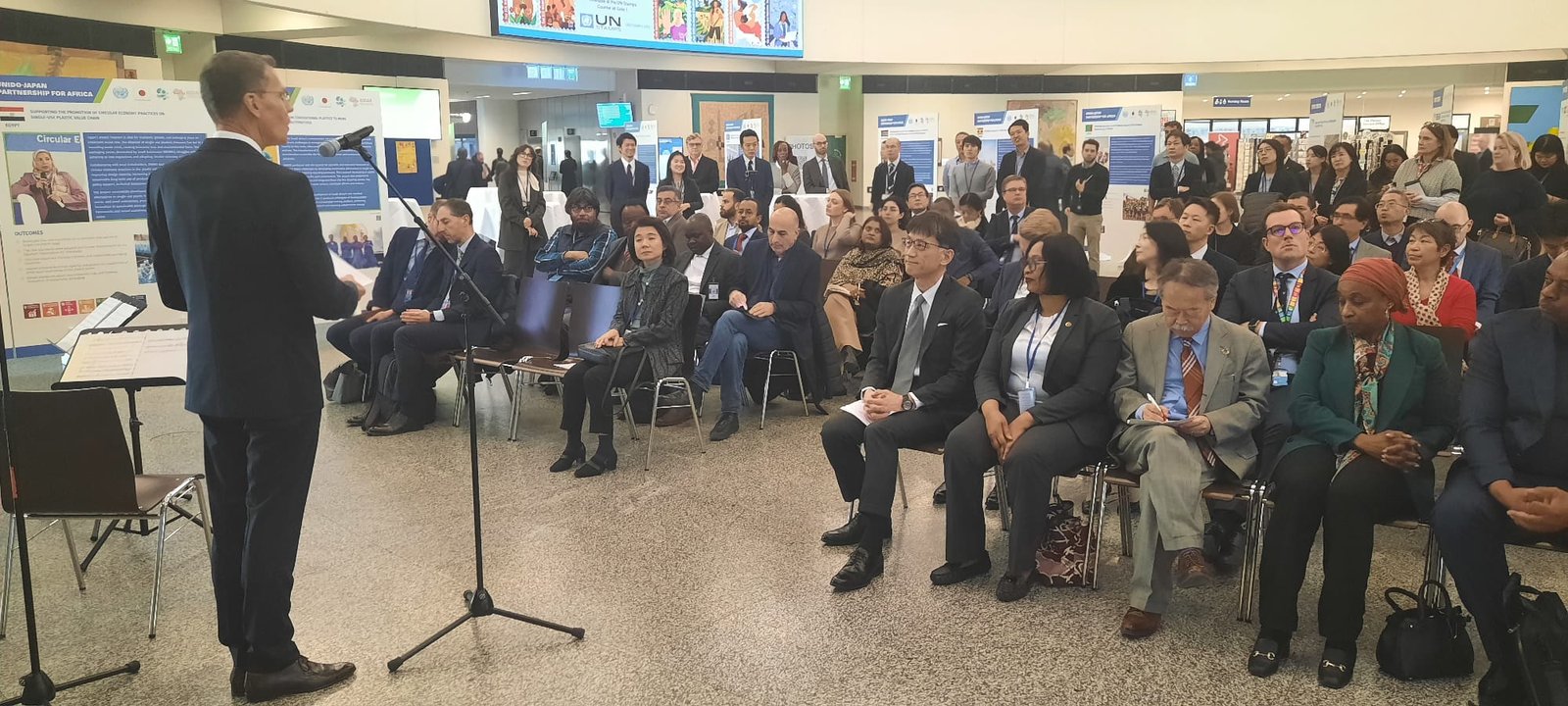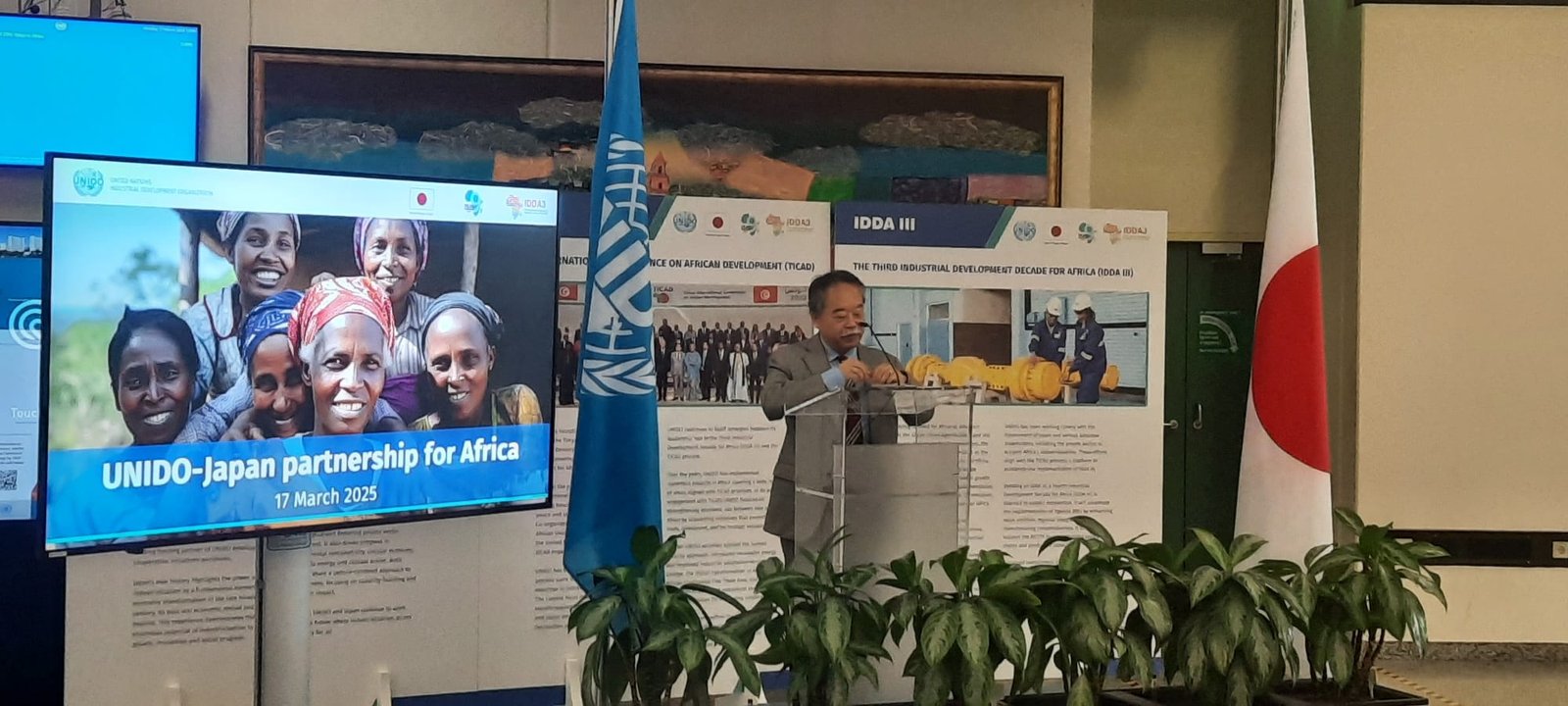By Abdalla Sharief, Hedi Bousnina, Jakob Staubmann -18/03/2025

Introduction to the Event
The ‘UNIDO-Japan Partnership for Africa’ event, hosted by the Permanent Mission of Japan to the International Organizations in Vienna, marks a significant milestone in international cooperation aimed at bolstering Africa’s development. This event, took place from 17.03.2025 to 21.03.2025, highlighted the robust collaboration between Japan and the United Nations Industrial Development Organization (UNIDO). The primary objective is to showcase successful initiatives and examples of cooperation that have emerged from this partnership, emphasizing Japan’s unwavering commitment to supporting African nations in their quest for sustainable growth and industrialization.
Japan’s engagement with UNIDO reflects a broader strategy to enhance economic development across the African continent. By integrating innovative technologies and fostering knowledge transfer, this partnership aids in addressing some of the pressing challenges that Africa faces today, including issues related to poverty alleviation, job creation, and infrastructure development. Through initiatives supported by UNIDO, Japan aims to empower African countries to harness their resources effectively, build resilient economies, and improve the quality of life for their populations.
By demonstrating tangible results and leveraging innovative practices, the event not only reinforces the strong bilateral ties between Japan and African countries but also underlines the role of international organizations in fostering development cooperation, making it a noteworthy occasion for all stakeholders involved.
Highlights of the Exhibition
The event showcased an array of innovative projects funded by Japan, reflecting the deepening UNIDO-Japan partnership aimed at fostering sustainable development across Africa. Among the featured initiatives, the emphasis was on key sectors such as agriculture, energy, and technology, which are crucial for economic growth and poverty alleviation in various African nations. For instance, in Egypt, Japan’s investment in agricultural technology has enhanced food security by improving crop yields through advanced irrigation systems.
In Ghana, state-of-the-art renewable energy projects were highlighted, showcasing how Japanese technology is being utilized to harness solar power effectively. This initiative not only addresses energy shortages but also contributes to the sustainability goals set forth by both the African Union and Agenda 2063. Kenya’s project, focusing on water purification systems, demonstrated the commitment to improving health and sanitation by ensuring clean water access in rural communities.
Utilizing its operational base, the UNIDO Investment and Technology Promotion Office in Tokyo played an instrumental role in facilitating these collaborations. The office was pivotal in creating synergies between Japanese technological expertise and the resource needs of African nations. This office acts as a bridge, promoting investment opportunities and transfer of knowledge, especially in sectors such as manufacturing and infrastructure development.
Other notable projects included initiatives in Nigeria targeting youth entrepreneurship through tech incubators, which have empowered young innovators to launch their businesses effectively. In South Africa, Japan’s support in enhancing skills training in the industrial sector has had a significant impact on job creation and workforce development. Moreover, projects in Uganda and Zambia aimed at improving agricultural practices through innovative financing mechanisms were also emphasized, showcasing Japan’s commitment to driving transformational change across the continent.
Opening Ceremony and Keynote Speakers
The opening ceremony of the “Unido-Japan Partnership for Africa” was slated for March 17, 2025, and promised to set the stage for a week filled with innovation and collaboration. This landmark event will bring together distinguished dignitaries, enhancing the dialogue between Japan and Africa. Among the notable attendees are the ambassadors from Japan and Burkina Faso, whose presence signifies the strengthening ties between these nations. Their insights will be crucial in addressing Africa’s industrialization needs and opportunities.
Additionally, the event featured keynotes from prominent figures such as the UNIDO Director General, a pivotal voice in advocating for sustainable industrial development in Africa, and the Deputy to the Director General, who focused on the role of partnerships in fostering economic growth. The speeches inspired and motivated stakeholders to take actionable steps toward realizing the potential of African industries.
In a fusion of culture and diplomacy, the ceremony also highlighted a captivating performance by the My Heart String Quartet from Hiroshima. This cultural presentation served as a reminder of the shared values and aspirations that unite Japan and Africa. The quartet’s ability to blend traditional and contemporary music enriched the atmosphere, made the event even more memorable.
Furthermore, the ceremony witnessed the presentation of new projects funded across several African nations. These projects are designed to bolster local economies, enhance livelihoods, and promote sustainable practices. The discussions surrounding these initiatives underscore their significance in driving forward the partnership between UNIDO and Japan, aiming for both alleviation of poverty and sustainable industrial growth. The opening ceremony thus not only marked the beginning of the partnership’s activities but also paved the way for meaningful collaboration that addressed the challenges faced by the continent.
Conference Sessions and Networking Opportunities
The conference within the framework of the Unido-Japan partnership for Africa is set to feature a diverse array of sessions designed to foster innovation and collaboration. Each session delved into pertinent topics, offering attendees valuable insights and opportunities for engagement. A particularly noteworthy session focused on investment strategies tailored to stimulate economic growth and development across African nations. Industry experts presented effective approaches and methodologies, highlighting real-world examples to illustrate the potential for investment in various sectors.
Another critical session addressed the challenges inherent in the plastic circular economy. Experts in environmental sustainability shared their findings on current obstacles, innovative solutions, and best practices in recycling and waste management. This discussion aimed to promote dialogue on how to create sustainable systems that can enhance the resilience of African economies against environmental issues.
Furthermore, participants benefited from a session that showcases successful stories in lean manufacturing from Ghana. Key stakeholders presented case studies that demonstrate the effectiveness of lean principles in improving productivity and quality while reducing waste. This sharing of experiences not only inspired attendees but also provide actionable insights for similar implementations across the continent.
In addition to the conference sessions, a reception was held following the opening ceremony, offering an excellent networking opportunity for all participants. This informal setting encouraged dialogue and facilitate collaboration among attendees, paving the way for future partnerships and projects. Overall, the combination of informative sessions and networking opportunities underscored the event’s commitment to advancing meaningful connections among stakeholders in the African development space.















